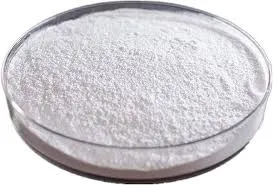
Oct . 10, 2024 17:55 Back to list
hydroxyethylcellulose powder
Hydroxyethylcellulose Powder An Overview of Its Properties and Applications
Hydroxyethylcellulose (HEC) is a non-ionic, water-soluble polymer derived from cellulose, which is widely used in various industries due to its unique properties. This versatile compound is produced through the etherification of cellulose, resulting in a white, powdery substance that dissolves easily in water. The intrinsic properties of HEC, such as its thickening, gelling, and stabilizing capabilities, make it invaluable across numerous applications, including pharmaceuticals, cosmetics, food, and construction.
Properties of Hydroxyethylcellulose
One of the most notable characteristics of hydroxyethylcellulose powder is its ability to form viscous solutions in water at varying concentrations. This viscosity can be tailored to meet specific needs by modifying the degree of substitution during its manufacture. A higher degree of substitution typically enhances the solubility and viscosity of HEC, making it particularly useful in formulations that require a thicker consistency.
Moreover, HEC is pH-stable, which allows it to maintain its properties across a range of pH levels. This stability makes it ideal for use in products that are subject to varying environmental conditions. Hydroxyethylcellulose is also resistant to electrolytes, which means it maintains its thickening properties even in the presence of salts—an attribute that adds to its versatility in formulations.
Another important feature of HEC is its non-toxic and biodegradable nature, making it a favorable choice for environmentally-friendly products. These attributes align well with the growing consumer demand for sustainable and safe ingredients in various applications.
Applications of Hydroxyethylcellulose
hydroxyethylcellulose powder

1. Pharmaceuticals HEC finds extensive use in the pharmaceutical industry as a thickening agent and stabilizer. It is commonly used in the formulation of ointments, gels, and other topical treatments. Its ability to retain moisture makes it an excellent choice for formulations designed to hydrate the skin. Additionally, HEC is used as a binding agent in tablet formulations, where it can help in controlling the release of active ingredients.
2. Cosmetics and Personal Care In cosmetic products, hydroxyethylcellulose is often employed as a thickener and emulsifier. It is a common ingredient in shampoos, conditioners, lotions, and creams, where it helps stabilize emulsions and improve the texture of formulations. Due to its ability to provide skin feel and enhance spreadability, it is favored in many personal care products.
3. Food Industry Hydroxyethylcellulose is utilized in the food sector as a thickening and stabilizing agent. It can improve the texture of sauces, dressings, dairy products, and ice creams. As a fat replacer, it contributes to calorie reduction while maintaining the mouthfeel and viscosity of food items. Furthermore, its ability to retain moisture enhances the shelf life of various food products.
4. Construction In the construction industry, HEC is incorporated into cementitious materials, such as mortars and adhesives. It acts as a water-retaining agent, improving workability and adhesion while preventing premature drying of the materials. This application is particularly beneficial in environments with high evaporation rates or in large-scale construction projects.
5. Agriculture Hydroxyethylcellulose is gaining attention in the agricultural sector as a soil conditioner and a carrier for pesticide formulations. It helps improve soil structure and enhances the delivery of nutrients to plants, contributing to overall crop health.
Conclusion
Hydroxyethylcellulose powder is a multifaceted polymer with a wide array of applications that underscore its importance in modern industries. Its unique properties, including thickening, emulsifying, and stabilizing capabilities, make it indispensable in pharmaceuticals, cosmetics, food, construction, and agriculture. As demand for sustainable and biodegradable materials continues to grow, hydroxyethylcellulose remains in the spotlight as a safe and effective ingredient for various applications. The ongoing research and innovation surrounding HEC are likely to yield even more applications, further solidifying its role in diverse fields. In summary, hydroxyethylcellulose powder not only enhances product performance but also aligns with consumer values, making it a key component in the formulations of tomorrow.
-
Versatile Hpmc Uses in Different Industries
NewsJun.19,2025
-
Redispersible Powder's Role in Enhancing Durability of Construction Products
NewsJun.19,2025
-
Hydroxyethyl Cellulose Applications Driving Green Industrial Processes
NewsJun.19,2025
-
Exploring Different Redispersible Polymer Powder
NewsJun.19,2025
-
Choosing the Right Mortar Bonding Agent
NewsJun.19,2025
-
Applications and Significance of China Hpmc in Modern Industries
NewsJun.19,2025







